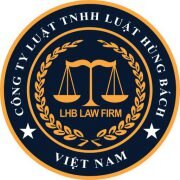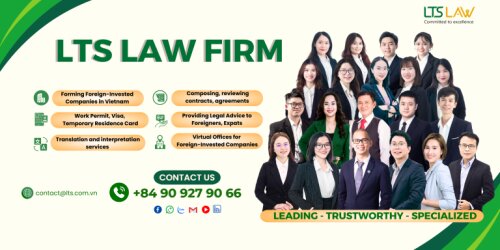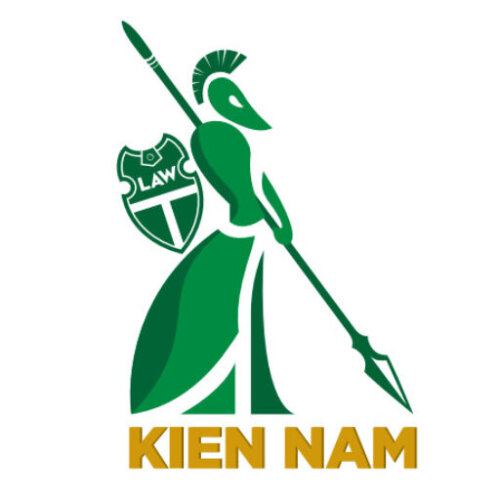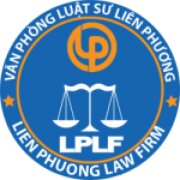Best Native People Lawyers in Ho Chi Minh City
Share your needs with us, get contacted by law firms.
Free. Takes 2 min.
List of the best lawyers in Ho Chi Minh City, Vietnam
About Native People Law in Ho Chi Minh City, Vietnam
In Vietnam, the term "Native People" typically refers to the indigenous or ethnic minorities living throughout the country, although the majority of these groups reside in the northern highlands rather than in urban centers like Ho Chi Minh City (formerly Saigon). Vietnam recognizes 54 ethnic groups, and while there are small communities of these groups in the city, the legal framework affecting them is largely uniform across the country. Vietnamese laws that protect the rights of ethnic minorities apply to the Native People in Ho Chi Minh City, which include laws on cultural preservation, land use, and political representation.
Why You May Need a Lawyer
Many situations warrant legal guidance for Native People in Ho Chi Minh City. Some of these situations include land disputes, discrimination or harassment claims, preserving cultural heritage, employment law issues, and assistance with navigating the policies set out for minority businesses or educational programs. A lawyer can assist Native People in protecting their rights, ensuring fair treatment, and guiding them through the complexity of Vietnamese legal processes.
Local Laws Overview
Local laws in Vietnam that affect Native People, including those in Ho Chi Minh City, involve rights to land use and protection of cultural identity. The Vietnamese Constitution and various national laws provide for the protection of minority languages, customs, and access to education and state services. Land laws are particularly significant for Native People, as these can affect their traditional ways of life and economic activities. Legal frameworks are also in place for the political representation of ethnic minorities, ensuring that these groups have a voice in the national assembly and local government bodies.
Frequently Asked Questions
What legal rights do Native People have in Vietnam?
Native People in Vietnam have rights that include the practice of their traditions, languages, and religions, access to education and healthcare, and representation in government. These are enshrined in the Constitution as well as specific laws governing ethnic minorities.
Can Native People own land in Ho Chi Minh City?
Land ownership in Vietnam is technically not possible as all land is owned by the state. However, Vietnamese law allows for land-use rights, which can be obtained by all citizens, including Native People.
How does Vietnam ensure the political representation of Native People?
Vietnam's legal system includes provisions for ensuring that Native People are represented in the National Assembly and local government bodies. This representation helps ensure that the interests of ethnic minorities are considered in legislative processes.
Are there any legal aids and services for Native People in Ho Chi Minh City?
Yes, there are organizations and legal aid services in Ho Chi Minh City that focus on providing support to Native People, which include legal advice, representation, and assistance in navigating various bureaucratic processes.
What should Native People do if they face discrimination?
If facing discrimination, Native People are advised to seek legal counsel to understand their rights and the actions that can be taken. Vietnam's laws prohibit discrimination based on ethnic background, so legal remedies may be available.
Is cultural preservation protected by law in Vietnam?
Yes, the Vietnamese legal system includes measures to protect the cultural practices and heritage of Native People, ensuring that these traditions can be preserved and promoted.
Are there any specific laws for Native People employment?
While Vietnam's labor laws apply uniformly to all citizens, there are policies aimed at ensuring equal employment opportunities for Native People. Employers are encouraged to create inclusive workplaces for people from ethnic minorities.
What kind of legal support is available for Native People starting a business in Ho Chi Minh City?
There are incentives and support programs designed to assist Native People in starting and running businesses. Legal support can be obtained through various governmental and non-governmental organizations that provide advice and facilitate access to these programs.
How can Native People protect their traditional knowledge and intellectual property?
Traditional knowledge and intellectual property are protected under Vietnamese law. Native People can register their traditional handicrafts, medicinal knowledge, and other intellectual property to ensure that they retain the rights and can benefit economically from their knowledge.
Where can Native People in Ho Chi Minh City learn more about their legal rights?
Information about legal rights can be obtained from local legal aid organizations, government offices, community centers, and online resources provided by both governmental and non-governmental entities.
Additional Resources
For legal advice and additional support, Native People in Ho Chi Minh City can reach out to community organizations dedicated to ethnic minority affairs, local branches of the Ministry of Justice, and the Vietnam Lawyers Association. The Committee for Ethnic Minority Affairs is another valuable resource for information related to policies and programs aimed at ethnic minorities.
Next Steps
If you need legal assistance as a member of the Native People in Ho Chi Minh City, Vietnam, consider the following steps: 1. Identify the specific issue or concern that you need help with. 2. Reach out to local organizations that provide legal aid to Native People. 3. Prepare any relevant documents or information related to your case. 4. Schedule a consultation with a lawyer who has experience with ethnic minority laws and issues. 5. Follow the legal process as advised by your lawyer, and keep track of all proceedings and documentation. 6. Utilize the support systems and resources available to you throughout the process.
Lawzana helps you find the best lawyers and law firms in Ho Chi Minh City through a curated and pre-screened list of qualified legal professionals. Our platform offers rankings and detailed profiles of attorneys and law firms, allowing you to compare based on practice areas, including Native People, experience, and client feedback.
Each profile includes a description of the firm's areas of practice, client reviews, team members and partners, year of establishment, spoken languages, office locations, contact information, social media presence, and any published articles or resources. Most firms on our platform speak English and are experienced in both local and international legal matters.
Get a quote from top-rated law firms in Ho Chi Minh City, Vietnam — quickly, securely, and without unnecessary hassle.
Disclaimer:
The information provided on this page is for general informational purposes only and does not constitute legal advice. While we strive to ensure the accuracy and relevance of the content, legal information may change over time, and interpretations of the law can vary. You should always consult with a qualified legal professional for advice specific to your situation.
We disclaim all liability for actions taken or not taken based on the content of this page. If you believe any information is incorrect or outdated, please contact us, and we will review and update it where appropriate.















